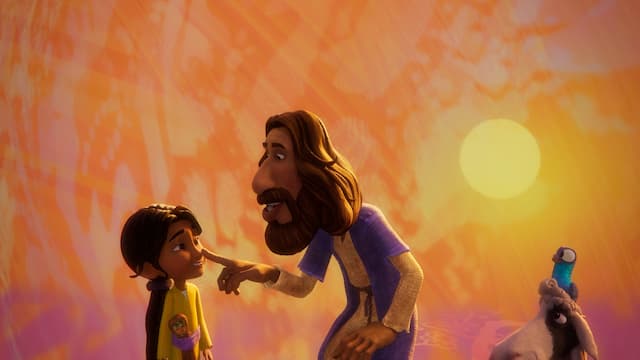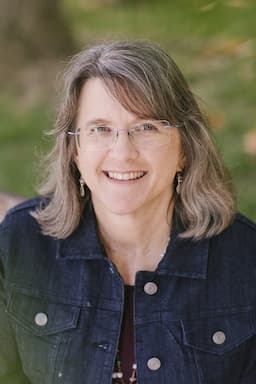Love's Frets and Rubs - Joyfully Pressing On

Enduring loves welcome frets and rubs. They look beyond this life. That’s how they rise to heaven.
I think that’s what C.S. Lewis meant about how love becomes holy charity. About how natural love for our kids and friends and mates turns into the unnatural-supernatural-agape love.
As in, the greatest of these is love. Charity.
When Love Isn’t So Sweet
Lewis’ last chapter in the Four Loves is called, “Charity.” Here’s how it starts:
William Morris wrote a poem called “Love is Enough” and someone is said to have reviewed it briefly in the words “It isn’t.” Such has been the burden of this book. The natural loves [affection, friendship, eros] are not self-sufficient. Something else…must come to the help of the mere feeling if the feeling is to be kept sweet.
To say this is not to belittle the natural loves but to indicate where their real glory lies. It is no disparagement to a garden to say that it will not fence and weed itself, nor prune its own fruit trees, nor roll and cut its own lawns…It will remain a garden, as distinct from a wilderness, only if someone does all these things to it. (p. 276)
So what is it that keeps love sweet? Not just married love, but friendship love and parent’s love too? What is it that turns it supernatural, that can transcend earth to heaven?
It’s not a monthly date with your girlfriends or your kiddos, or speaking the language of your mate. It’s not weekends away or card and gifts every special day. It’s not these things.
What Lets Love Rise Above
It’s easier-and harder- than these. Easier because the way up is ever-present. Harder, because it comes at the cost of frets and rubs, of irritation and disappointment and frustration.
It’s easier- and harder- because we need God to turn our natural loves around.
We are, however, much helped in this necessary work by that very feature of our experience at which we most repine. The invitation to turn our natural loves into Charity is never lacking. It is provided by those frictions and frustrations that meet us in all of them; unmistakable evidence that (natural) love is not going to be “enough”– unmistakable, unless we are blinded by egotism. When we are, we use them absurdly. “If only I had been more fortunate in my children (that boy gets more like his father every day) I could have loved them perfectly.” But every child is sometimes infuriating; most children are not infrequently odious. “If only my husband were more considerate, less lazy, less extravagant”…”If only my wife had fewer moods and more sense, and were less extravagant”…”If only my father wasn’t so infernally prosy and close-fisted.”
But in everyone, and of course in ourselves, there is that which requires forbearance, tolerance, forgiveness. The necessity of practicing these virtues first sets us, forces us, upon the attempt to turn -more strictly, to let God turn- our love into Charity. These frets and rubs are beneficial. It may be that where there are fewest of them the conversion of natural love is most difficult. When they are plentiful the necessity of rising above it is obvious. To rise above it when it is as fully satisfied and as little impeded as earthly conditions allow -to see that we must rise when all seems so well already- this may require a subtler conversion and a more delicate insight. In this way also it might be hard for the “rich” to enter the kingdom. (p. 286)
-C.S. Lewis, The Four Loves, VI “Charity”







